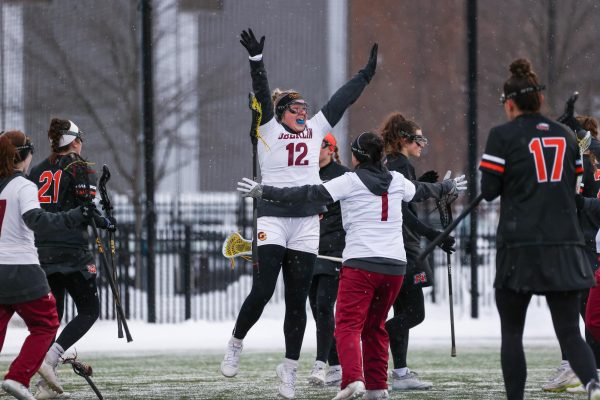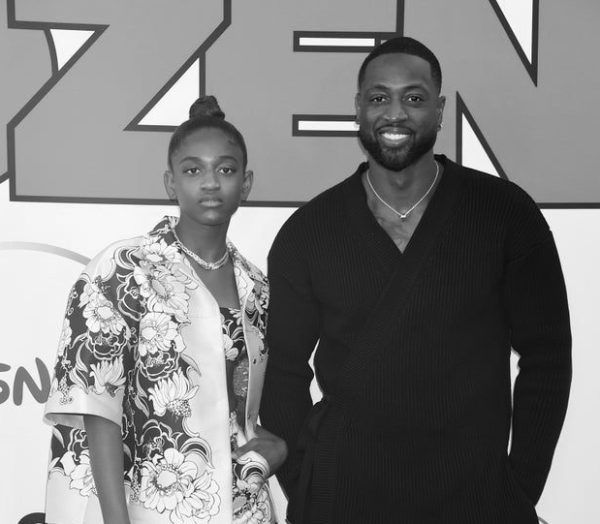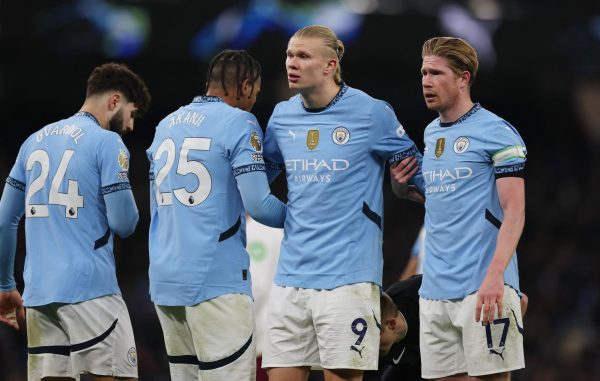Megan Rapinoe Leads the Race for Women’s Rights in Sports
If you’re in search of a hero during Women’s History Month, look no further than Megan Rapinoe. As one of the most important players on the U.S. Women’s National Soccer Team, Rapinoe played a big role at the 2015 World Cup in Canada, where the United States won it all with a victory over Japan. She was also instrumental in the United States winning the gold medal in women’s soccer at the 2012 London Olympics. At the same time, she has emerged as one of the boldest, most outspoken and justice-driven athletes in modern sports. No list of trailblazing female athletes is complete without her name at the top of it.
On the field, Rapinoe’s presence is hard to miss. As a forward, she scores her fair share of goals, but more importantly, she is often the mastermind behind the team’s offense, with a crafty, smart style of play that usually results in deft passes and scoring opportunities for her teammates, particularly Alex Morgan.
While her presence on the field is powerful, her impact off the field is equally notable. Rapinoe is involved in many sports-related social justice organizations, including Common Goal, a group that supports soccer-oriented charities around the globe, where she pledges a portion of her salary every year. Additionally, Rapinoe has spent many offseasons working with Boys and Girls Clubs in the Seattle area and raising disaster relief funds for her hometown of Redding, CA. She has also been a partner of Athlete Ally, an LGBTQ organization that fights homophobia in all levels of sports.
“I have an incredible platform [as an athlete] … I’m very lucky to be on one of the most recognizable teams and to have this huge following,” Rapinoe told the Los Angeles Times in September. “To not use that, to not give back, that’s selfish. And I don’t feel right about that.”
Rapinoe’s latest mission is her highly visible involvement in a lawsuit filed against the United States Soccer Federation. The lawsuit, which also includes more than two dozen other female players, made headlines across the country last week. It takes aim at the longstanding issue of discrimination against women’s teams on the basis of sex, addressing the fact that the Women’s National Soccer Team receives comparatively fewer benefits than the Men’s National Soccer Team — which the U.S. women consistently outperform. Rapinoe has been a leading voice in publicizing and explaining the lawsuit. This lawsuit follows one in 2016 in which Rapinoe, Morgan, and other top players sought equal pay for members of the Men’s and Women’s National Soccer Teams.
The current lawsuit, however, is a bigger animal than the one from 2016. Whereas the one from three years ago addressed mostly wage inequities, the discrepancies in treatment of the two teams cited in the new lawsuit include dis- parities in wages and salaries, training and field conditions, travel accommodations, and medical treatment, according to Refinery29. It is worth noting that after winning the 2015 World Cup, the women split a collective bonus of $1.73 million, while the men, who didn’t even qualify for the 2018 World Cup, split a bonus of $5.38 million after losing prematurely in the round of 16 in the 2014 World Cup, according to a report from The Washington Post.
While it is unclear whether the new lawsuit will produce tangible results, the sexist disparities between the treatment of the women’s and men’s national teams is finally receiving the attention it deserves, and Rapinoe can take some of the credit for that. She has not only contributed to the success of the women’s team on the field, which has certainly helped increase the popularity of soccer in this country, but has also made social justice a part of her platform off the field. Rapinoe has made herself a forceful, effective presence in the national landscape. So, during this year’s Women’s History Month, make sure you take a moment to honor Rapinoe, who remains not only one of the best players in the league, but also a leader beyond the world of professional sports.








